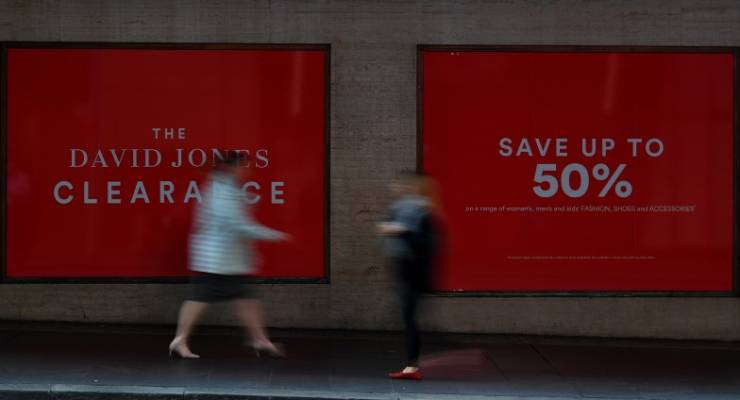
As a parent, I hate the boardgame Monopoly. It never takes long before one lucky player has bought up a slab of real estate, and the rest are mortgaging their properties just to survive. No matter how happy the kids are when they start the game, it invariably seems to end up in tears.
As it turns out, that’s how most economists feel about real monopolies. From the British East India Company to Standard Oil, monopolies produce too little, and charge too much. Like the strongest kid in the schoolyard, they sometimes throw their weight around – threatening to bankrupt or buy off competitors. Monopolies can become fat and lazy, living off their dominant market position rather than looking for ways to produce better and cheaper products.
In recent decades, Australia’s monopoly problem has come into stark relief. To see the size of it, Australian National University researcher Adam Triggs and I analysed hundreds of Australian industries. Across half the economy, we found that the biggest four players controlled more than one-third of the market.
Supersized market shares can translate into supersized profits. As Grattan Institute concluded in 2017, “super-normal profits account for more than half of total profits in supermarkets, liquor retailing, and wireless telecommunications”. Because most shares are held by the most affluent, a system that hurts consumers and helps shareholders tends to make Australia more unequal.
One way that monopolies gain ground is through mergers. In the past three decades, the number of mergers in Australia rose seven-fold, from 259 to 1909, with the total value of merger transactions rising from US$34 to US$146 billion. Some mergers are healthy, but we only have to look to problematic mergers in the United States, such as America Online-Time Warner, or eBay-Skype, to see the need for care.
Yet at present, there is no systematic process to assess whether mergers have been good for consumers. Firms will often make bold claims in advance of the merger about what it will do for productivity, prices, employment and wages. But if the claimed benefits don’t eventuate, we rarely notice. As anyone who’s tried to master a skill knows, deliberate feedback is essential to long-term improvement.
Ideally, post-merger reviews would be carried out by the Australian Competition and Consumer Commission twice in the decade following the merger. They would be independent and transparent, so that everyone can learn the lessons of what worked, and what did not.
While mergers have risen, the start-up rate has fallen. New business creation was stronger last decade than this decade, which has led some to worry that the playing field has been tilted away from David and towards Goliath. When monopolies run amok, Australians can feel like they’re playing a board game against an opponent who’s rigged the dice. Little choice, low quality, high prices.
It doesn’t have to be that way. With smarter competition policies, we can encourage scrappy start-ups to take on bloated monopolists. That means higher productivity and better wages.
Post-merger reviews would sit alongside our other proposals to improve Australia’s competition laws, including giving the ACCC new powers to conduct market studies, raising the penalties for anti-competitive conduct, increasing the litigation budget of the competition watchdog, giving consumer groups the power to make “supercomplaints” about consumer rip-offs, and making unfair contract terms illegal.
Andrew Leigh is the federal Shadow Minister for Competition and Productivity.








The whole aim of “free market competition” is to cannibalise any compertition.
Where they find it difficult to create monopolies, they get governments to hand over naturally occuring ones such as water supplies, electricity distribution, communications media, transport facilities etc.
It’s all fair in the “Game of Mates”.
Good idea. Any economy is made stronger and more equitable by disaggregation, by more smaller entities. But compare that laudable aspiration to the way the ATO aggressively targets small business. And the bloke that revealed that attack by the government on its own citizens is also subject to legal attack by the government. He should be thanked for revealing the extent to which the ATO engages in outright persecution of citizens silly enough to engage in small business.
Hasn’t there been some talk or even activity in parliament recently to try and stop big players like the supermarkets squeezing their suppliers (as they do) to neutralise their excessive market power?
Talk would be the extent of it.
Libs & ALP are not representative of the electorate, they both enjoy the stability that monopoly brings. Not to mention the $$$ in party contributions aka bribes.
Well said, Andrew!
When is Labor going to introduce such a policy?
Better be quick before any coalition government…state or federal… sells off anything else that isn’t nailed down!
They either sell off public assets, many of which are natural monopolies, or make it easy for big business to create their own…this must stop!!
What policy? To have reports that we then ‘learn from’? To have ‘smarter competition policies’? (like what, Andrew?)
Yes let us investigate the mergers after the fact so we can do…. nothing. Because as I have been told by multiple members of parliament from your party, doing anything about it is going to make us Venezuela. Not a single idea abut what the post merger reports can actually do. Oh we’ll learn from our mistakes, do unspecified and vague things to encourage Start Ups.